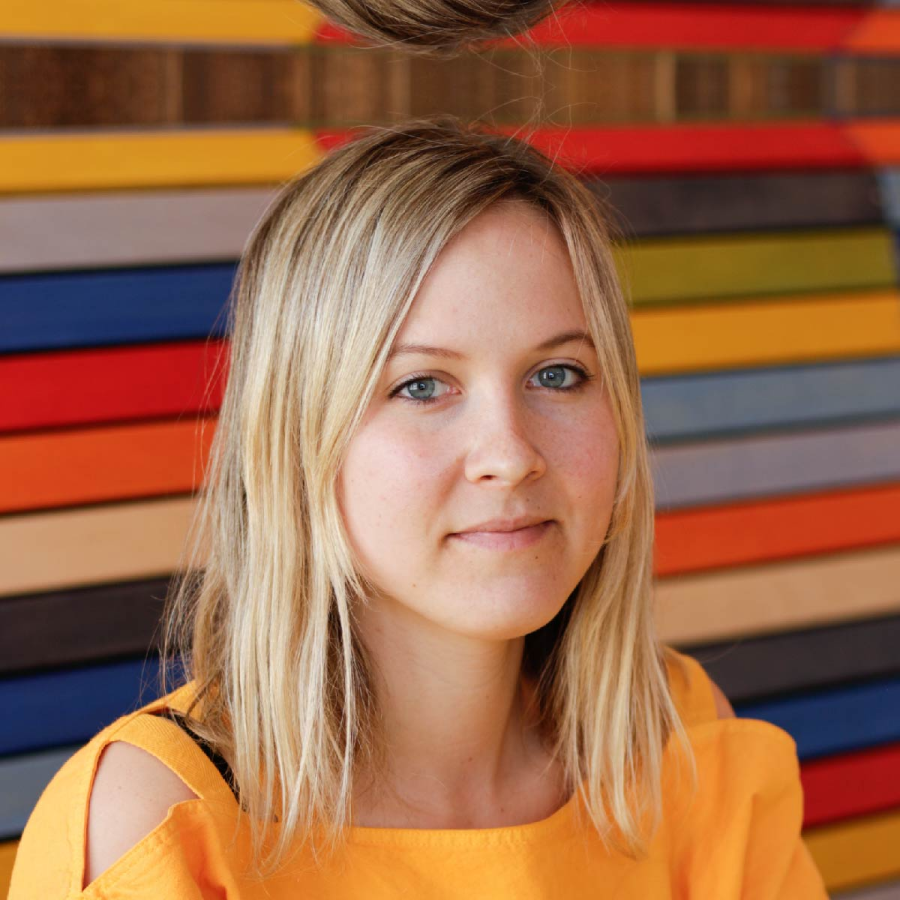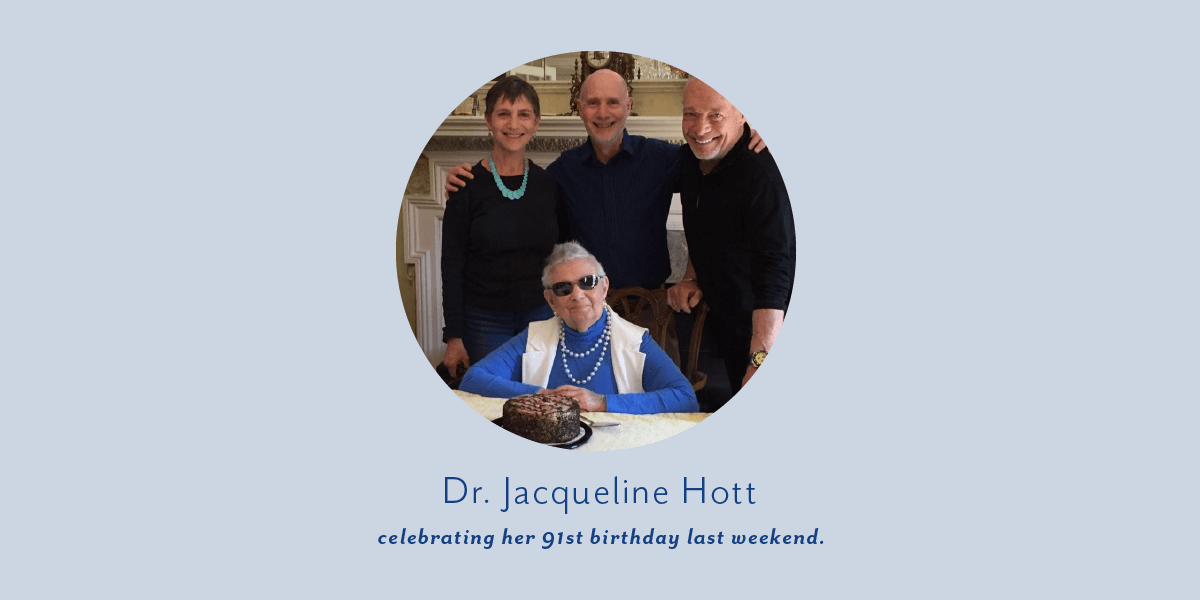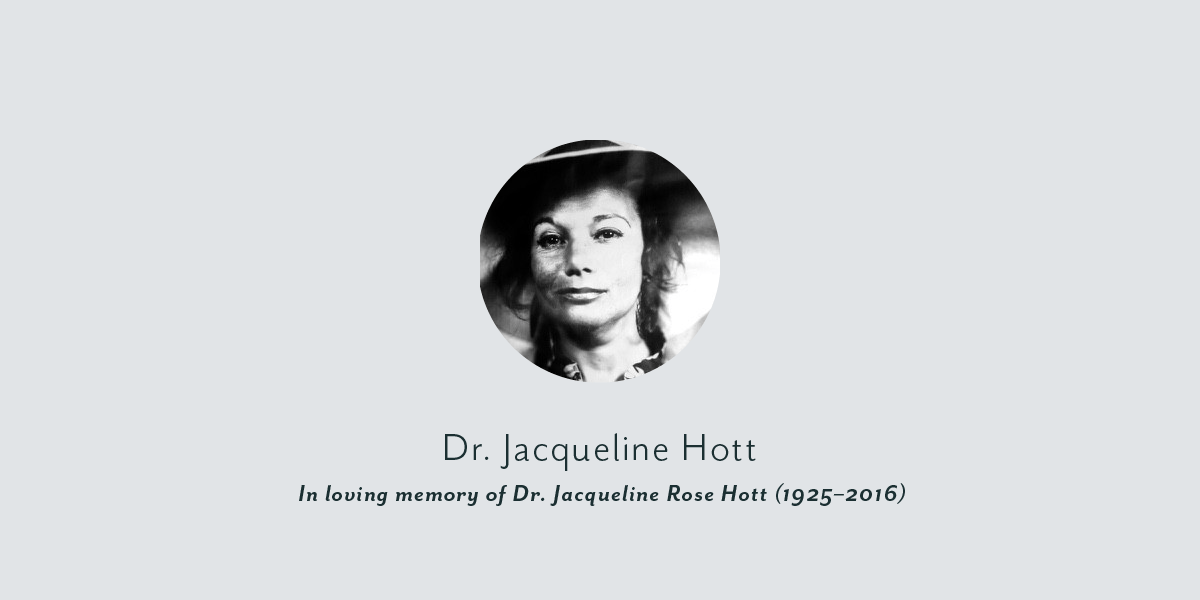Illustration by Katrin Friedmann
Sex, desire and love: relationship advice from Dr. Hott

Dr. Jacqueline Hott knows a lot about relationships. She’s a mother of 4, grandmother of 10 (including our head of marketing at Clue, Lisa Kennelly!) and great grandmother of 2. And at 91, she’s a practicing sex therapist in New York with a tight schedule.

Dr. Hott was scraping by as a college student when lo and behold, World War II broke out. The U.S. desperately needed nurses, and she needed a steady job, so she switched her major to nursing to serve her country. After years of hard work, Hott found her true passion in sex therapy after noticing the difficulty couples have expressing their sexual needs, especially after giving birth.
I’m so grateful Dr. Hott penciled me in for an invaluable conversation about her life, career, sex, love and the foundations of a healthy relationship…
Before we talk about sex, I have to ask what it was like getting your period for the first time in the 30s.
My period came when I was around 12 years old, and I was not prepared for it at all. I did not know what a period was. We weren’t taught in school. I had an older sister who was 7.5 years older, but she left home at 16 and did not tell me about it. My mother obviously menstruated, but all I knew was that there were rags hanging on the shower curtain rod in the bathroom. I didn’t know what they were for.
And when I showed my mother the stain, she slapped me in the face. I found out it was a tradition, but I wasn’t sure if it meant “welcome to the club” or if I did something wrong. She could never explain it. Her mother did it to her, but I don’t think I slapped my daughters when they first got their periods.
I had no models to teach me about periods, but I never had a problem with my period. I just accepted it. I didn’t learn how to use a tampon until I had intercourse for the first time because of the belief around the hymen being broken.
I realized later when I knew more about anatomy that tampons were not going to tear the hymen. I also began to learn how much I didn’t know about the female body and its lasting powers.
What about sex education in the 30s?
There was no sex education. The public schools I went to were very traditional.
I think there are still wildernesses out there where abstinence education prevails and people just don’t know about the body. I have to teach my patients constantly. I take the chart out and I still have to teach people about their own body parts to this day.
Talking about sex in Western culture is no longer considered to be a huge taboo. What was it like for you?
Out of wedlock, sex was terrible. Girls in school were not able to continue if they were pregnant. It was a shame. It was embarrassing. And girls were considered “sluts” if they had sex during high school.
Anal and oral sex were not okay. These were the secrets that everyone knew, but no one talked about. People would read books — lewd books — to get their information. I can’t remember the titles of the books at that time, but I remember reading the Jalna series. I had to be around 14 years old.
How has the cultural view of sex changed in the U.S.?
I think we’ve become more sexual and more open about sexuality. Social media exposes more, and now that makes me think about sending nudes. This would not have been available for us until the Land camera (polaroids) was around — when you could start taking pictures without them being developed. But nude pictures started on walls of caves and erotica goes back all the way to biblical times.
Historically, female sexuality has been hidden. And it’s not encouraged. Going back centuries: Why did women have to be veiled? Why were they kept in separate places?
Things are more open today. We could not have been having this conversation over open airwaves or printed or put on a podcast or done anything openly. We would have been pulled out into the courtyard and whipped.
What’s missing in the current landscape of sex research? What questions should we ask our users about sex?
The question is how to do the research because this is most difficult.
When it becomes solely biological testing in a lab it’s not the same as in vivo. When you’re measuring the quality of stimulus to produce an orgasm, but at the same time you have something measuring the brainwaves, is that the same as making love? What happens? Spiritually, emotionally, physically — it’s the most difficult to measure what is authentic. Is authenticity possible in sex research?
I would ask people about love: How do you know if you’re in love? Women and men describe it in different ways. I can tell when people are in love by the look in their eyes. It’s something indescribable.
What is the most important thing in a relationship?
Communication is everything. I look at the way people communicate.
I’m a big fan of John Gottman’s work at the University of Washington and the Love Lab. He describes four communications styles:
- Criticism
- Defensiveness
- Contempt
- Stonewalling
The antidote to all of these is appreciation.
So I look to see the way a couple argues and how they make efforts to heal. What do they do to soften the argument? Do they continue to irritate it, rev it up or make peace?
Do you ever look at a couple and think, “Oh man, this is NOT gonna last.” Or do you think everyone can “work it out?”
Do they want to work it out? You know the saying: “If there’s a will, there’s a way.”
What are the pressures on them in terms of children, family, finances? Can they let go in order to build up, learn again and develop? Can they forgive?
Where there is so much hurt, sometimes it is very hard to let go, but that’s the process of forgiveness. It takes a lot a time.
In monogamous relationships, one of the harder obstacles to overcome is adultery. How do you help couples cope with that?
Many therapists find adultery to be one of the most painful experience that you deal with in therapy. You’re dealing with hurt, pride, disappointment, loss. It’s a tremendous egotistical blow. It’s one of those mortal wounds.
I’ve seen couples overcome it, but I don’t know if they really overcome. It’s like touching a scar. Like any scar, it has healed and it doesn’t hurt as much as it once did. But you can feel the scar tissue, and you’ll always know it’s there.
What is the most common issue you witness in relationships?
The number one issue is desire and low desire. And again, this isn’t just a problem with sex, but it’s a problem with the relationship. You have to deal with the relationship and how the couple sees themselves as a “we.”
What’s their history in terms of desire? Desire starts from the very beginning. What was the initial turn on/off? What was their previous relationship like? And what made the relationship special? What made the desire happen?
A higher sense of desire at the beginning can be fantasy. What you haven’t had, you begin to imagine, and there’s a smoke and mirrors effect. When things clear up, desire may decrease.
Desire can be affected by little things.
Let’s think of desire in terms of food: You’re at home sitting down to dinner and a friend comes over. You tell them, “We’re just about to have supper. Come sit down and eat with us.” They say they’re not hungry and won’t be eating, but sit down anyway. You give them a small plate of appetizers, and they start to nibble at it. Then they have a few bites of salad, and next thing you know, they’re hungry and eating dinner with you after all. The smells, the sights, the taste affected their desire.
Low desire in the beginning can be influenced over time by things that show affection, care, intimacy or reliability, and may lead you to want more.
Favorite position?
That’s interesting. I’ve never thought of it. I think I’ll be cute in saying a loving one.
Have you ever seen the way a mother or father look at their newborn baby for the first time? Look at the way they look at the baby. They look directly into the baby’s eyes and trace the baby’s face with one finger — very lightly, gently and lovingly. That’s the way you start making love. It’s like a rebirth.
Best sex tip?
Patience. Take your time. ❤
